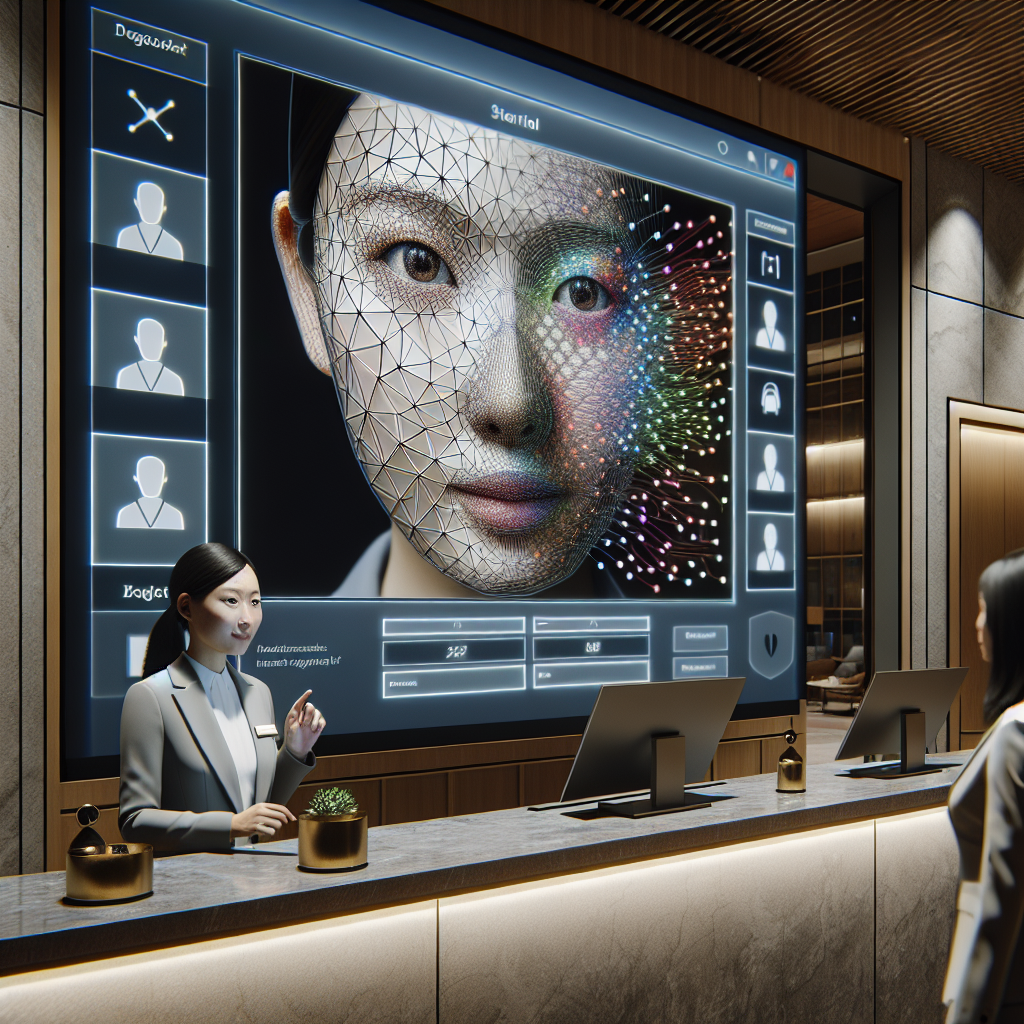Artificial intelligence (AI) and facial recognition technology have been making significant strides in various industries, including the hospitality sector. In recent years, hotels have been leveraging these technologies to improve guest recognition and identification, providing a more personalized and seamless experience for their guests. The use of AI and facial recognition in hotels has the potential to revolutionize the way guests are welcomed, identified, and serviced, ultimately enhancing the overall guest experience.
Facial recognition technology works by analyzing the unique features of a person’s face, such as the distance between the eyes, the shape of the nose, and the contours of the face. This information is then used to create a digital template, or “faceprint,” which can be compared against a database of known faces. When a guest checks into a hotel that uses facial recognition technology, their faceprint is compared against the hotel’s database of guests, allowing for quick and accurate identification.
One of the main benefits of using AI and facial recognition in hotels is the ability to provide a more personalized experience for guests. By recognizing guests as soon as they arrive, hotels can greet them by name and anticipate their needs, such as room preferences or dining choices. This level of personalization can help hotels to build stronger relationships with their guests, leading to increased loyalty and repeat business.
Facial recognition technology also has the potential to streamline the check-in process, making it faster and more convenient for guests. Instead of waiting in line to check in and provide identification, guests can simply walk up to a kiosk or tablet equipped with facial recognition technology, which will automatically identify them and retrieve their reservation information. This not only saves time for guests but also reduces the workload for hotel staff, allowing them to focus on providing a higher level of service.
In addition to improving guest recognition and identification, AI and facial recognition technology can also enhance security measures in hotels. By monitoring the comings and goings of guests and staff, hotels can detect any suspicious behavior or unauthorized individuals on the premises. This can help to prevent theft, vandalism, or other security incidents, ultimately creating a safer environment for guests and employees.
Despite these benefits, there are also concerns surrounding the use of AI and facial recognition technology in hotels. One of the main concerns is privacy, as some guests may feel uncomfortable with the idea of their facial data being stored and used by a hotel. To address this concern, hotels must be transparent about their use of facial recognition technology and obtain consent from guests before collecting their facial data. Additionally, hotels must ensure that they have robust security measures in place to protect this data from unauthorized access or misuse.
Another concern is the potential for bias or inaccuracies in facial recognition technology, particularly when it comes to identifying individuals from diverse backgrounds. Studies have shown that some facial recognition algorithms have higher error rates when identifying individuals with darker skin tones or non-binary gender identities. To address this issue, hotels must ensure that their facial recognition technology is properly calibrated and tested to minimize biases and inaccuracies. Additionally, hotels should have backup identification methods in place to verify the identity of guests in case of any discrepancies.
Despite these challenges, the use of AI and facial recognition technology in hotels is likely to continue to grow in the coming years. As the technology becomes more advanced and widespread, hotels will be able to provide an even higher level of personalized service to their guests, ultimately enhancing the overall guest experience.
FAQs:
Q: How does facial recognition technology work in hotels?
A: Facial recognition technology works by analyzing the unique features of a person’s face, such as the distance between the eyes, the shape of the nose, and the contours of the face. This information is used to create a digital template, or “faceprint,” which can be compared against a database of known faces. When a guest checks into a hotel that uses facial recognition technology, their faceprint is compared against the hotel’s database of guests, allowing for quick and accurate identification.
Q: What are the benefits of using AI and facial recognition in hotels?
A: Using AI and facial recognition in hotels can provide a more personalized experience for guests, streamline the check-in process, and enhance security measures. By recognizing guests as soon as they arrive, hotels can greet them by name and anticipate their needs, leading to increased loyalty and repeat business. Additionally, facial recognition technology can help to improve security by monitoring the comings and goings of guests and staff.
Q: What are the concerns surrounding the use of facial recognition technology in hotels?
A: Some of the main concerns surrounding the use of facial recognition technology in hotels include privacy, bias, and inaccuracies. Guests may feel uncomfortable with the idea of their facial data being stored and used by a hotel, leading to concerns about privacy. Additionally, there is a risk of bias or inaccuracies in facial recognition technology, particularly when it comes to identifying individuals from diverse backgrounds. Hotels must address these concerns by being transparent about their use of facial recognition technology, obtaining consent from guests, and ensuring that their technology is properly calibrated and tested.

